Originally posted at: http://www.nerdfitness.com/
So you’re interested in nutrition coaching?
Great! It’s a smart move for the right person.
I’ve seen the power of it firsthand in our Online Coaching Program, with folks making small nutrition adjustments with big results.
But before you go and hire a nutrition coach, read this guide!
You see, in many places “nutritionist” is an unregulated term, so not all nutrition coaches you find will be equally qualified.
So let’s tell you what to look out for and whether you even need a nutrition coach to get started.
Here’s what we’ll cover:
- What does a nutrition coach do?
- How can a nutrition coach help me?
- What’s the difference between a dietitian and a nutritionist?
- What certifications should a nutrition coach have?
- Signs of a good nutrition coach (and signs of a bad one).
- How much does a nutrition coach cost?
- Do we even need a coach? (How to simplify nutrition).
- Is a nutrition coach worth it?
- Hiring a nutrition coach (Next steps).
Let’s do this thang.
What Does a Nutrition Coach Do?

Nutrition coaches guide people’s dietary habits to improve their health, body composition, or athletic performance.
To do this correctly, a nutrition coach will need to know the science behind:
- How different macronutrients (protein, fat, and carbs) affect the human body.
- Calories, metabolism, and energy balance.
- The vitamins and minerals found in our food.
In a nutshell, a good nutrition coach will know how to properly nourish the human body.
They can probably also tell you a little bit about nuts and their shells!

But being an expert in nutrition science is only half of it. The other half is people.
Yep, a nutrition coach also needs to be an expert on folks like us. Otherwise, it’s hard to help people develop new habits.
Because sure, a chicken salad for dinner could be a smart move.
But how do you make that realistic for someone like Mason, who’s constantly working and studying?

That’s where a coach comes in.
To be done well, nutrition coaching needs to include “behavior change,” which enters the realm of psychology.
So a nutrition coach needs to be an expert on two things:
- Nutrition science
- People
Without the second bullet, you’re just handing out good advice that no one will ever use.

Before we go on, I will mention that through NF Coaching, we not only work on nutrition. But we also help build sustainable workout programs too! The goal is really to come at fitness from every angle, including exercise, nutrition, and mindset. We’ve learned this is the key to making changes that LAST.
If you’d like to learn more about it, you can scope out our program right here:
Okay, let’s talk a little more about how a nutrition coach can help.
How Can a Nutrition Coach Help Me?

There are all sorts of things a nutrition coach can help us with.
For example, a good nutrition coach will provide:
#1) ACCOUNTABILITY
This is one of the top reasons people hire a coach in the first place. When we survey those who join NF Coaching, it’s often the number one reason folks join the program.
That’s because knowing what to do is one thing. Doing it is quite another.
When we’re accountable to someone else, whether it’s a coach or even a friend who’s on a similar mission, we’re more likely to follow through.

Heck, it’s one of the reasons Rebel Leader Steve has a strength coach, despite running a fitness company.
Here’s what Steve says about it:
I know when my coach asks me about my workout, I don’t want to let him down. So I just do the workout.
The same accountability can happen with nutrition.
For example, if we make a plan for meal prep on Sunday afternoon, we’re more likely to do it if we know our coach will ask about it on Monday.
Accountability can often be the missing piece for starting long-lasting change.
#2) A PERSONALIZED APPROACH
It’s really easy to go online and find a bunch of free recipes for healthy meals.
For example, here are 26 such recipes.
While these recipes can be a great starting point, they often won’t help with individual challenges:
- What if we don’t have any time to cook?
- What if we have to deal with food allergies?
- What if we want to eat the same dinner as our family?
That’s where the help of a coach can be a game-changer.
They can offer specific recommendations around our unique challenges (and we all have unique challenges). Plus, they can check in with us to make sure their solutions are working.
If those solutions aren’t working for us – nbd. They’ll brainstorm new strategies we can implement.
This personalized solution can be very helpful if we haven’t had much success with a “right out of the box” approach.
#3) EXPERTISE
I mentioned earlier that a nutrition coach needs to be an expert on human nutrition.
This is helpful, so we don’t have to worry about:
- Is Keto the best strategy for weight loss?
- Why have so many people had success with Paleo?
- How does OMAD fit into this?

While it’s good to be curious about different diets, a nutrition coach can help separate fact from fiction when it comes to healthy eating.
Otherwise, we might get tricked into following some terrible “crash diet” or some social media “fad diet.”
#4) GUIDANCE AROUND “HOW TO EAT”
Most people approach proper nutrition around “what to eat.” Just as important, however, can be “how to eat.”
For example, a nutrition coach can help us develop skills around:
- Eating mindfully and slowly. Our bodies take a while to recognize it’s full. That’s why slowing down and concentrating on our meals can help with portion control. Some skills that might help include using a meal timer, putting the fork down between bites, and eating without the TV or our phone (i.e., no distractions).
- Recognizing hunger and fullness cues. Sometimes, we eat just to eat. Maybe we’re more bored than hungry. Maybe we’re stressed and find ourselves emotionally eating. To help fight this, we can keep a “Hunger and Fullness Journal.” With our journal, we rate our hunger from 1 to 10 before eating anything. If it’s less than 6 or 7, maybe we pause for 30 minutes or so and check back in later. It’s the same idea for our fullness. We’ll pause during the meal so we can ask “How hungry am I still?” If our hunger has subsided, maybe we save the rest of our food for later. The goal is to get to know our body’s hunger signals again.
- Creating a schedule for meals. Most people do best with eating on some type of routine. Breakfast, lunch, and dinner at roughly the same time. Our body will pick up on this and naturally get hungry at the times we normally eat.
In our Online Coaching Program, we’ll often assign missions to work on a “how to eat” skill for the week:
- “This week, how about we put down our fork between bites?”
- “What if our next mission is to eat without the TV on?”
- “How do you feel about having dinner at the same time this week?”
These missions are discussed and built between the coach and client, so we can custom-make the best plan for you! After a few months of this, it can be surprising just how different our eating habits look.

#5) TOOLS FOR BUILDING HEALTHY HABITS
One of our head coaches is fond of saying “The secret to our program is we build long-term healthy habits together.”
Sure, it’s great if someone can work out 2x a week and eat healthy lunches every day for a month.
But it’s even BETTER if they can do it for the foreseeable future.
The difference between the two?
Making them long-term habits.
A habit is something we do all the time, without much thought. Like bruising our teeth in the morning or showering at night.
We want our healthy eating behaviors to join this mix.
If a year from now, we’re still practicing the actions our nutrition coach recommended, then we’ll call that a major win.
Hiring a nutrition coach can absolutely be worth the investment if we continue our healthy habits after our time together is over.
Next, let’s talk about what separates a dietitian from a nutritionist.
What Is the Difference Between a Dietitian and a Nutritionist?

The big difference between a “dietitian” and a “nutritionist” is the formal education required and the regulations that govern the use of the title.
While they both have their time and place, it’s important to understand the difference between the two:
- Dietitians treat disease through nutrition and will often work within hospitals. For example, they might prescribe a diet to a patient with diabetes to help manage blood sugar levels. They’ll likely hold the title of Registered Dietitian (RD).
- Nutritionists work with the general population to develop healthy eating behavior, often to meet a client’s personal goal. You might hear them referred to as a “Nutrition Coach.”
Throughout most of the world, the title of “dietitian” is regulated by a governing body, like the Academy of Nutrition and Dietetics in the United States.[1]
While some states and countries do regulate the title of “nutritionist,” the requirements are often far less rigorous.
Here’s another way to think of it: all “Dietitians” can likely call themselves “Nutritionists” but not all “Nutritionists” can call themselves “Dietitians.”
To become a dietitian in the US you need to:
- Earn an accredited bachelor’s or master’s degree
- Complete an internship
- Pass the Commission on Dietetic Registration (CDR) exam
- Obtain the appropriate state license
- Maintain said state license
What does it take to become a nutritionist?
Well, depending on where you live, it could be nothing.
Yep, you could print a business card with “nutritionist” on it and get to work.
Now, obviously, there’s a big difference between calling yourself a nutritionist and actually helping people.

Yeah…
However, that doesn’t mean a nutrition coach can’t be beneficial.
Since the barrier to entry is lower, it’s often more affordable to hire a nutritionist or nutrition coach.
Plus, a nutrition coach will often work alongside a dietitian, helping to facilitate their prescription.
Much the same way an orthopedist might work with a physical therapist.
Next, let’s chat about some certifications we can look out for if we want to hunt down a well-trained nutrition coach.
What Certifications Should a Nutrition Coach Have?

There are quite a few certification programs out there for nutrition.
Some are great!
Some are…not so great.
Let’s chat about some of the legit ones.
Here are some certifications to look for if we’re going to hire a nutrition coach:
#1) PRECISION NUTRITION CERTIFICATION LEVEL 1 (PN1)
One of the most well-respected certifications for nutrition comes from Precision Nutrition.
In fact, when we hire coaches, it’s one of the qualifications we look out for!
PN states there’s “no best diet for everyone” and instead believes coaches should help their clients find the individualized nutrition plan that works best for them.
They’re one of the best in the business, and their curriculum has had a big impact on Nerd Fitness Coaching.
#2) INTERNATIONAL SPORTS SCIENCES ASSOCIATION’S (ISSA) NUTRITIONIST CERTIFICATION
ISSA is an education company that does certifications for personal training and strength coaching.
They also offer a Nutrition Certification that is pretty well done.
#3) THE NATIONAL ACADEMY OF SPORTS MEDICINE (NASM) NUTRITION CERTIFICATION
NASM is another name well-respected in the fitness industry.
While they mainly certify personal trainers, they also offer a comprehensive nutrition certification.

Now, these three companies aren’t the only organizations that do good work with nutrition certifications. But this can start to give us an idea of things to look out for when seeking out a nutrition coach.
Signs of a Good Nutrition Coach (and Signs of a Bad One)

Not all nutrition coaches will be created equal:
- A good coach will work with us to develop a healthier relationship with food, focusing on habits that will help us reach our goals.
- A bad coach will just tell us to eat more broccoli (thanks Coach, super helpful).
Outside of the credentials we discussed in the last section, here are some other signs to look out for:
#1) They ask us a lot of questions
A good nutrition coach will want to learn about us before they recommend anything.
They’ll ask us questions like:
- What are your goals?
- What’s been your previous experience with weight loss or gain?
- How do you normally eat today?
- What’s your schedule like?
- What other priorities do you have?
Without this information, it’s very difficult to help someone.
If a nutrition coach doesn’t ask us a bunch of questions, that’s a huge giant red flag.
#2) They’ll work with us to create an action plan
The name of the game here is “long-lasting change.”
To do that, habits need to be created TOGETHER.
If our coach just tells us what to do, without any input from us, it might fall flat.
For example:
- If a coach tells us to batch cook on Sunday, but we don’t know how to work an oven, this won’t fly (here’s how to cook some easy meals btw).
- Let’s say we want to eat dinner with our family. Well, our coach’s advice to eat the same thing over and over might cause our kids to revolt (“Chicken AGAIN…gag”).
If a coach creates a plan that never addresses what we can do or what we want to do, it’s destined to fail.
#3) They’ll monitor our progress
Any halfway-decent coach is going to check in frequently for a status update.
As they say, that which gets measured gets managed, so a good nutrition coach will gather data on things like:
- Body Measurements. How much we weigh, waist circumference, etc.
- Strength. If we’re trying to grow strong, our coach might check to see if we’re increasing in weight with our resistance training.
- Lab test results. Maybe we have some health metrics, like cholesterol levels, we’re trying to change.
- Compliance. Let’s say we have a goal of eating a vegetable with every dinner. Are we actually doing it?
- Confidence. Our confidence levels can often be a good indicator of how we’re doing in a program.
If a nutrition coach doesn’t check in on how you’re doing, consider that another big red flag!
#4) They’ll base their recommendations on outcomes
A good nutrition coach is like a scientist.
Their recommendations are almost like experiments. They’ll ask themselves questions like:
- Did my clients perform their assigned tasks?
- Is it helping them with their goals?
- Are they enjoying themselves?
Like any good scientist, they won’t judge the outcome.
If under certain conditions an experiment catches fire…well…we now know what will set the experiment ablaze.

“Day 9…still catching fire.”
So a good nutrition coach will constantly reflect on what our feedback means:
- Scenario – “After working on it all week, my client still doesn’t have enough time to make breakfast.”
- Possible Solution – “Perhaps we should propose making a protein smoothie the night before?”
- Scenario – “Despite the changes we’ve made, my client hasn’t been losing weight.”
- Possible Solution – “Maybe it’s time for a food journal, so we can both see how many calories they’re eating?”
- Scenario – “My client easily obtained protein with every meal last week.”
- Possible Solution – “Maybe we should scale this up, and include a vegetable with every meal now too?”
That’s why a good nutrition coach is constantly changing their action plan, based on the outcomes they see and record.
#5) They know when to refer out
There are some things a nutrition coach can’t help us with.
That would be any kind of medical intervention.
If we need someone to “prescribe” a diet to treat any kind of disease (Crohn’s, Hashimoto’s, etc.), we’ll need an actual Registered Dietitian or other medical professionals to do so.
While a nutrition coach can help with the implementation of that treatment (“Here are some ways to get more iron in your diet”), the actual treatment needs to come from someone properly qualified.
Plus, a good nutrition coach will understand this. They’ll recognize their own lane and know when it’s time to refer out (and might even have some recommendations if you don’t know who to talk to).
How Much Does a Nutrition Coach Cost?

The cost of a nutritionist is really going to be variable.
But you can expect to pay $50 to $150 for a one-hour session with a nutrition coach.[2]
Note: Insurance will generally not cover a nutrition coach or nutritionist unless they are a registered dietitian.
This leads to another question…
How much does a registered dietitian cost?
Again, it’s variable, but you can expect to pay somewhere between $100 to $200 for a one-hour session with a dietitian.[3]
This might be covered by insurance, but usually only when there’s a diagnosis that requires nutrition counseling.
If the cost of a nutritionist seems too high, it might be worth considering…
Do We Even Need a Nutrition Coach? (or How to Simplify Nutrition)
Before we go out and hire a nutrition coach, it might be worth asking ourselves a couple of questions:
Am I making this harder than it needs to be?
Could I benefit from making nutrition super simple?
As Coach Staci explains in the video above, overcomplicating nutrition could look like this:
- Weighing all our food.
- Calculating the correct macronutrient split.
- Daily fasts.
Now, there’s a time and place for all this. But there’s also a time and place to ignore it.
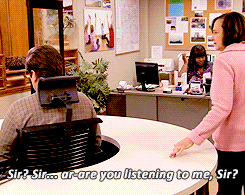
Coach Staci has had clients absolutely convinced they had to weigh their food to lose weight.
They’ll start out good, weighing everything they eat. This generally only lasts for a week or so, because they quickly grow annoyed at the overwhelming amount of work involved!
So they quit.
Instead of this, maybe we start off smaller and simpler.
To improve nutrition, try these three things:
- Have a glass of water with every meal.
- Have a lean source of protein at every meal.
- Have a vegetable with every meal.
That’s it! Let’s just do those three things.
Don’t worry about Keto, Paleo, or Plant-Based.
Just make sure to drink enough water, get plenty of protein, and eat lots of veggies.
Then we can worry about all sorts of complicated nutrition stuff.
Is a Nutrition Coach Worth It?

Ultimately, the question of whether or not a nutrition coach is worth it will come down to a few things:
- Our goals
- What we need help with
- What kind of coach is available to us
If it can be done on our own, great!
I’ve seen all sorts of Rebels grab a map and make their way to Mordor.
But, I’ve also seen lots of Rebels who’ve benefited from their very own Gandalf.

Someone who knows the way, and has helped people achieve similar goals.
A good nutrition coach can 100% be this…if we find the right one.
Remember, “nutritionist” isn’t always a regulated term, so do a little research before jumping in.
Here’s something else to consider: some personal trainers ALSO offer nutrition coaching.
Many coaches are combining traditional personal training services like programming workouts alongside nutrition counseling, since the two can often be dependent on one another.
That’s more or less the basis of NF Coaching. Our coaches customize exercise routines, plus help our clients build healthy habits around nutritious eating (done all online).
We’ve found that lasting success often combines BOTH diet and exercise, so we don’t ignore either.
Plus, it’s often a better value to bundle both services together.
If you’re interested in seeing if one of our coaches can help you adjust your nutrition ( while also growing stronger), you can see if we’re a good fit for each other right here:
How to Hire a Nutrition Coach (Next Steps)

So you’ve decided you want to hire a nutrition coach?
Sweet!
Here’s what to do:
- Determine goals. We don’t want to start this process blindly. Figure out some goals and write them down. Any good coach is going to ask us about them right away.
- Formulate the scope. Do we need a medical professional for a prescribed way of eating? Or can a more generalized approach work? Do we want to meet someone in person or online?
- Compare qualifications. Anyone can throw the word “nutrition coach” on their resume. So look at their qualifications. Are they certified? Do they have a track record for helping people? Don’t hire the first nutrition coach found. Do some research!
- Determine what “success” looks like. How will we know if we’re on the right track? Is it eating more vegetables? Losing 10 pounds? Ask what a successful result will look like.
- Get started. Write out some goals, do your research, and then act! Hiring a nutrition coach isn’t like getting married – we can always leave our coach after a month or two. Don’t let the search for the “perfect coach” prevent us from getting started.
That should help with hiring a nutrition coach.
Alright, I want to hear from you now:
Are you considering hiring a nutrition coach?
What behaviors do you need help with?
Any tips for hiring a good coach I’m missing?
Let me know in the comments!
-Paul Aguilar
PS: Make sure you check out The Nerd’s Guide to Healthy Eating for tips on how to make small tips on how to improve your nutrition.
###
Photo source: In 2015, the first woman coach was hired by a Major League Baseball team., ©Ekaterina Minaeva/123RF.COM, Four Bricks Tall, Not All Heroes Wear Capes, Mr. Bundit Chailaipanich/123RF.COM, ©rosinka79/123RF.COM, ©Lightfieldstudios/123RF.COM, bicycle
- More here.
- This number came from Precision Nutrition, who surveyed what their certified coaches charge for service.
- Taken from Cost Helper.
The post What Can I Expect From Nutrition Coaching? (5 Benefits) first appeared on Nerd Fitness.



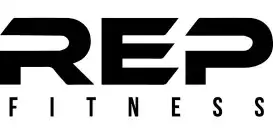
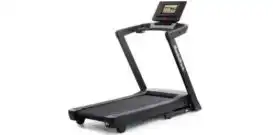
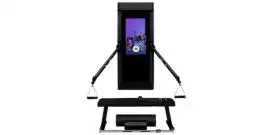
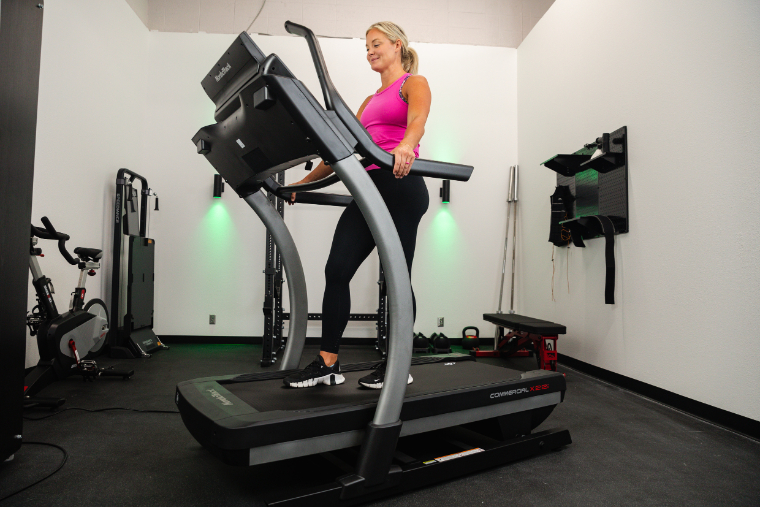
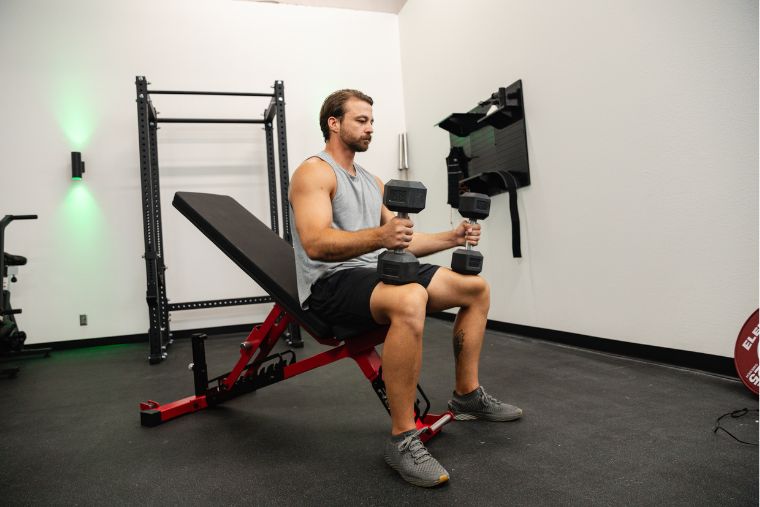
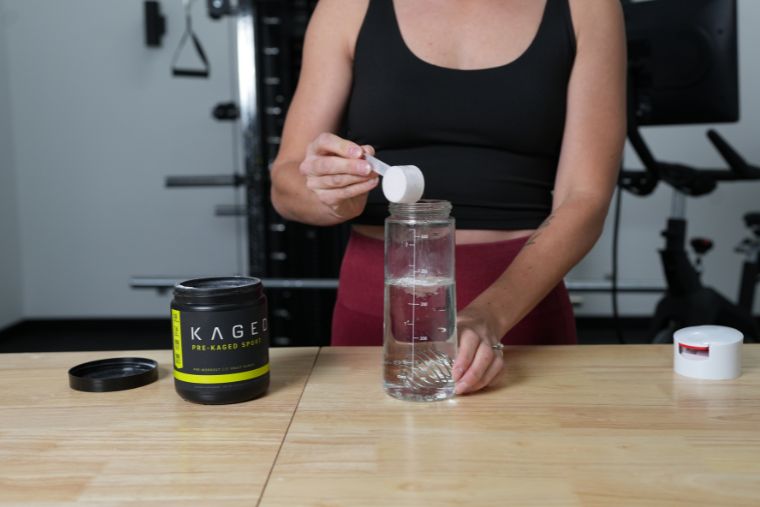
 For now classes are 6pm and 640pm at 2840 Wildwood st in the Boise Cloggers studio.
Book your class NOW!
click this ==>
For now classes are 6pm and 640pm at 2840 Wildwood st in the Boise Cloggers studio.
Book your class NOW!
click this ==>








